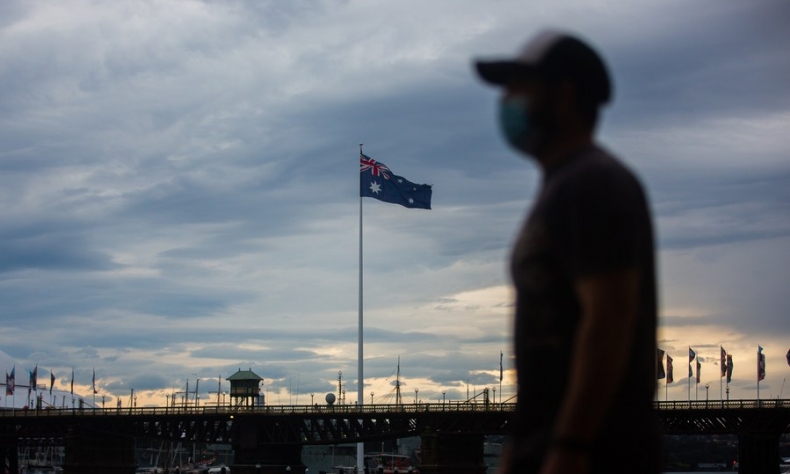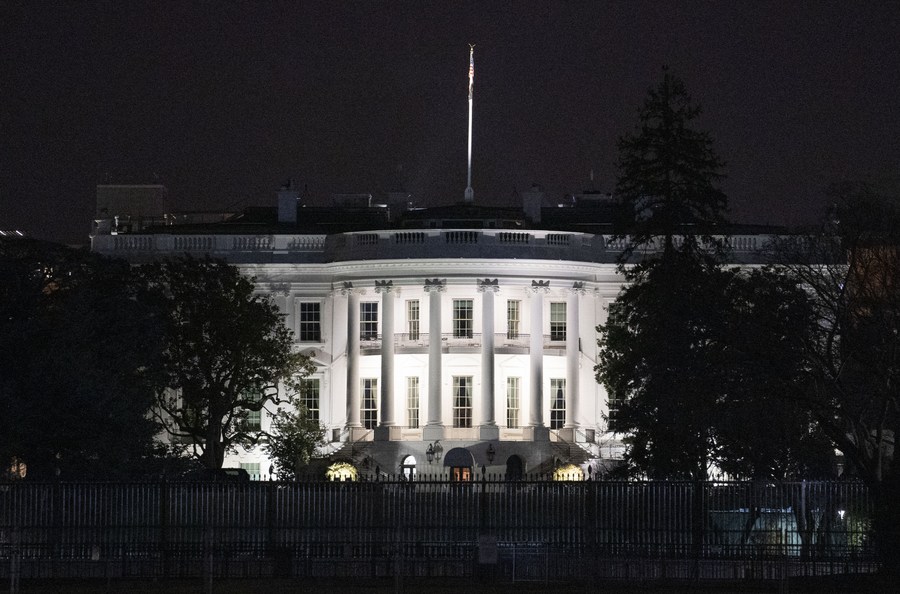Opening Pandora’s Box

For the international community, the AUKUS submarine deal sets a very dangerous precedent. Once this Pandora’s box is opened, it will seriously impact regional and global peace and security.
Eighteen months after the formation of the AUKUS alliance between Australia, the United Kingdom and the United States, the final details of Australia’s first nuclear-powered submarine fleet were unveiled on March 13. Australia will spend as much as $245 billion over the next three decades to purchase up to eight U.S. Virginia-class submarines, and will eventually jointly produce and operate a new submarine class with Britain. This is the biggest single defense project in the country’s history and will make it one of only seven countries across the world that operate nuclear-powered submarines. The deal is widely seen as a part of the ongoing attempt by the U.S. to counter China’s influence in the Indo-Pacific region.
China has expressed firm opposition to the deal. Chinese Foreign Ministry spokesperson Wang Wenbin said on March 14 that the AUKUS submarine deal will “only exacerbate the arms race, undermine the international nuclear non-proliferation regime and hurt regional peace and stability.”
In fact, the possession of nuclear submarines is more symbolic than practical for Australia, as an oath to strengthen its alliance with the United States. Its signing of the deal with the U.S. and the UK in September 2021 can be seen as a poisonous political legacy left by then Prime Minister Scott Morrison to the current Labor government, which is seeking to improve Australia-China relations. China is Australia’s largest trading partner, and the two economies are highly complementary, so it is more in Australia’s real interests to maintain a sound relationship with China.
It is worth mentioning that during an interview with Australian broadcaster the ABC on March 19, Defense Minister Richard Marles said Australia’s AUKUS submarine project “absolutely” did not come with a commitment to support the U.S. in any potential future conflict with China over Taiwan. “We want the best relationship with China that we can have, and we are working very hard to stabilize that relationship, and we value a productive relationship with China,” he added.

The AUKUS leaders said Australia’s future submarines will be conventionally armed and have committed to setting the highest nuclear non-proliferation standards. However, the AUKUS deal involves the transfer of tons of weapons-grade highly enriched uranium of over 90 percent purity from the U.S. and the UK, both nuclear weapon states, to Australia, a non-nuclear weapon state. For comparison, the Joint Comprehensive Plan of Action capped Iran’s stockpile of enriched uranium at 300 kg of uranium gas enriched to 3.67-percent purity. The U.S. and the UK have no scruples about proliferating nuclear material and technology to an ally, yet they castigate the others in the name of non-proliferation.
For the international community, the AUKUS submarine deal sets a very dangerous precedent. The 1968 Treaty on the Non-Proliferation of Nuclear Weapons (NPT) does not ban non-nuclear-weapon states from having nuclear-powered ships. However, as inspecting the reactors of vessels is impractical, non-nuclear states are permitted to withdraw material from the safeguards for use in naval propulsion. Unfortunately, this article turns out to be a loophole that the U.S. and the UK have manipulated to prevent the UN’s nuclear safety watchdog, the International Atomic Energy Agency (IAEA), from inspecting the submarines planned for Australia. As Australia is not a nuclear-weapon state, the IAEA would need to inspect its submarines, but the U.S. is unwilling to allow the international community to learn about its submarine technology. The loophole lets them evade inspection.
The current international order, in a sense, is based on a balance of power among nuclear weapon-possessing countries and maintenance of the NPT is actually maintenance of the world system. Although not all countries are satisfied with it, the system is still the least worst choice to ensure the overall peace of human society and the AUKUS submarine deal will inevitably create a greater risk of nuclear proliferation.
Once this Pandora’s box is opened, it will seriously impact regional and global peace and security.
 Facebook
Facebook
 Twitter
Twitter
 Linkedin
Linkedin
 Google +
Google +










